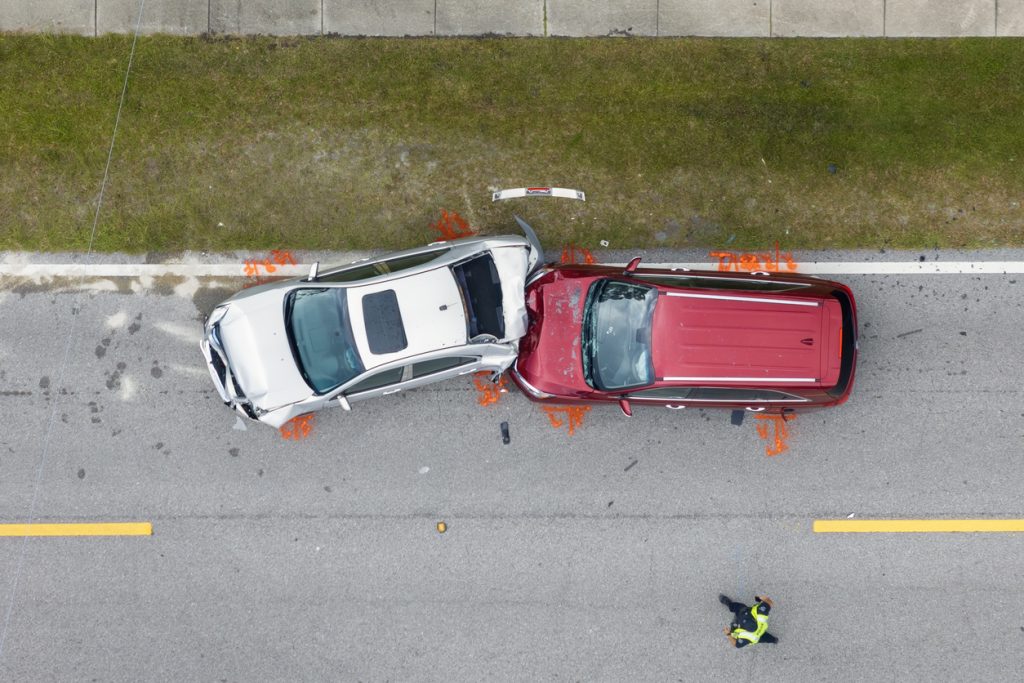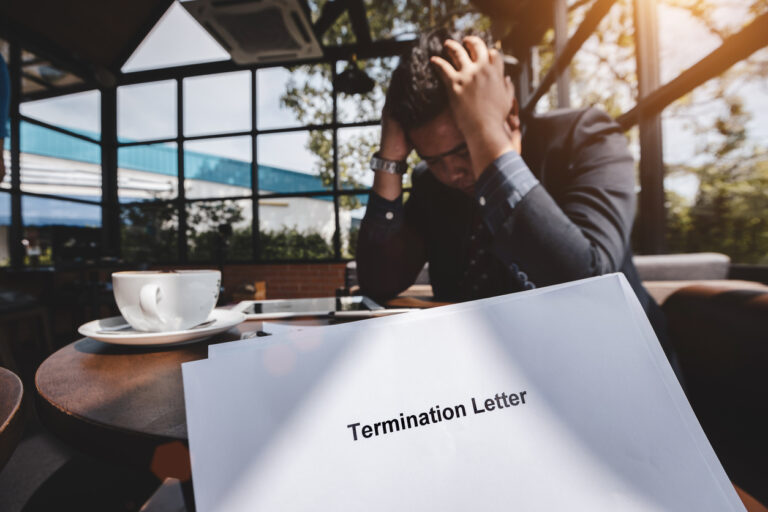If you lose your job due to a car accident, several legal and financial aspects need to be considered, depending on the circumstances of the accident, the nature of your employment, and the impact on your ability to work.
1. Workers’ Compensation (If Accident Occurred While Working)
- Eligibility: If the car accident happened while you were performing your job duties (like making deliveries or traveling between job sites), you might be eligible for workers’ compensation benefits.
- Benefits: Workers’ compensation can provide medical treatment (like physical therapy), temporary disability benefits, permanent disability benefits, and vocational rehabilitation if you can’t return to your previous job.
2. Unemployment Benefits
- Eligibility: If you lose your job due to a car accident and are unable to work temporarily, you might qualify for unemployment benefits. However, eligibility can vary, especially if you are not physically able to work. You may need to provide evidence you are seeking a new job.
- Application: You should apply through your state’s unemployment insurance program. Provide all necessary documentation regarding your employment and the car accident.
3. Disability Benefits
- Short-Term Disability (STD) Insurance: If you have STD insurance through your employer, you might be able to claim benefits that cover a portion of your income while you recover from your injuries.
- Long-Term Disability (LTD) Insurance: If your injuries result in a prolonged inability to work, LTD insurance may provide income replacement for an extended period.
- Social Security Disability Insurance (SSDI): If your injuries lead to a long-term or permanent disability, in specific circumstances, you may be eligible for SSDI benefits through the Social Security Administration .
4. Health Insurance and Medical Bills
- Health Insurance: Use your health insurance to file an insurance claim to cover medical bills related to the car accident. If you lose your job, you may be eligible for coverage to continue your health insurance temporarily.
- Personal Injury Claim: If the car accident was caused by a negligent party, you might be able to file a personal injury claim to recover damages for medical expenses, lost wages, and pain and suffering from the at-fault driver.
5. Legal Considerations
- Personal Injury Lawsuit: Consult with a personal injury lawyer to determine if you can pursue a lawsuit against the at-fault party. This can help recover compensation for lost wages, medical bills, and other expenses related to the accident .
- Employment Rights: If you believe your termination was unfair or discriminatory, consult with an employment lawyer to explore your options. You might have grounds for a wrongful termination lawsuit .
Steps to Take Immediately
- Seek Medical Attention: Ensure all injuries are documented and treated.
- Report the Accident: Inform your employer if the accident happened during work-related activities, or if you missed work.
- File Necessary Claims: Submit claims for workers’ compensation, disability benefits, or unemployment benefits, as needed.
- Consult Legal Professionals: Speak with employment lawyers to understand your rights and options.
What To Do If You Were Fired After a Car Accident Injury
If you were terminated because you sustained a serious injury in a car accident, several protections and options might be available depending on the circumstances of your termination, the nature of your employment, and state and federal laws.
1. Workers’ Compensation Protections
- Retaliation Protections: If the auto accident occurred while you were performing your job duties, you may be eligible for workers’ compensation benefits. Employers are prohibited from retaliating against employees for filing a workers’ compensation claim. If you believe your termination was a form of retaliation, you can file a complaint with the California workers’ compensation board.
2. Family and Medical Leave Act (FMLA)
- FMLA Leave: If you work for a covered employer (generally those with 50 or more employees) and meet the eligibility requirements, you are entitled to up to 12 weeks of unpaid leave per year for a serious health condition, which can include injuries from a car accident. During FMLA leave, your job is protected, and your employer usually must maintain your health benefits.
3. Americans with Disabilities Act (ADA)
- Reasonable Accommodation: If your accident injuries result in a disability, you may be protected under the ADA. Employers are required to provide reasonable accommodations to employees with disabilities, as long as it does not cause undue hardship to the employer. If you were terminated without consideration of reasonable accommodations, you might have grounds for a claim with the ADA.
4. Wrongful Termination Claims
- Public Policy Violations: If your termination violates public policy, such as firing you for taking medical leave or filing a workers’ compensation claim, you may have a case for wrongful termination. Public policy exceptions vary by state, so consulting with an employment lawyer or car accident lawyer is the best idea. At Lawyers for Justice, P.C. (LFJ) the powerful attorneys can help clients who lost income because of a car crash, and as a result, were unfairly fired. LFJ even offers a free consultation to get started.
5. Unemployment Benefits
- Eligibility for Unemployment Insurance: If you lose your job, or lost earning capacity, due to a car accident, you may be eligible for unemployment benefits, provided you are physically able to work and are actively seeking new employment.
Steps to Take If Terminated
- Document Everything: Keep records of all communications with your employer about your lost job, medical documentation, and any evidence of retaliation or failure to accommodate.
- File a Complaint: If you believe your rights were violated, file a complaint with the appropriate state or federal agency. For workers’ compensation retaliation, this might be the state workers’ compensation board. For FMLA or ADA violations, you can contact the U.S. Department of Labor or the Equal Employment Opportunity Commission (EEOC).
- Consult an Employment Lawyer or personal injury attorney: An employment lawyer can provide specific advice based on your situation and help you navigate the process of filing claims or lawsuits.
Last Updated on May 20, 2025



